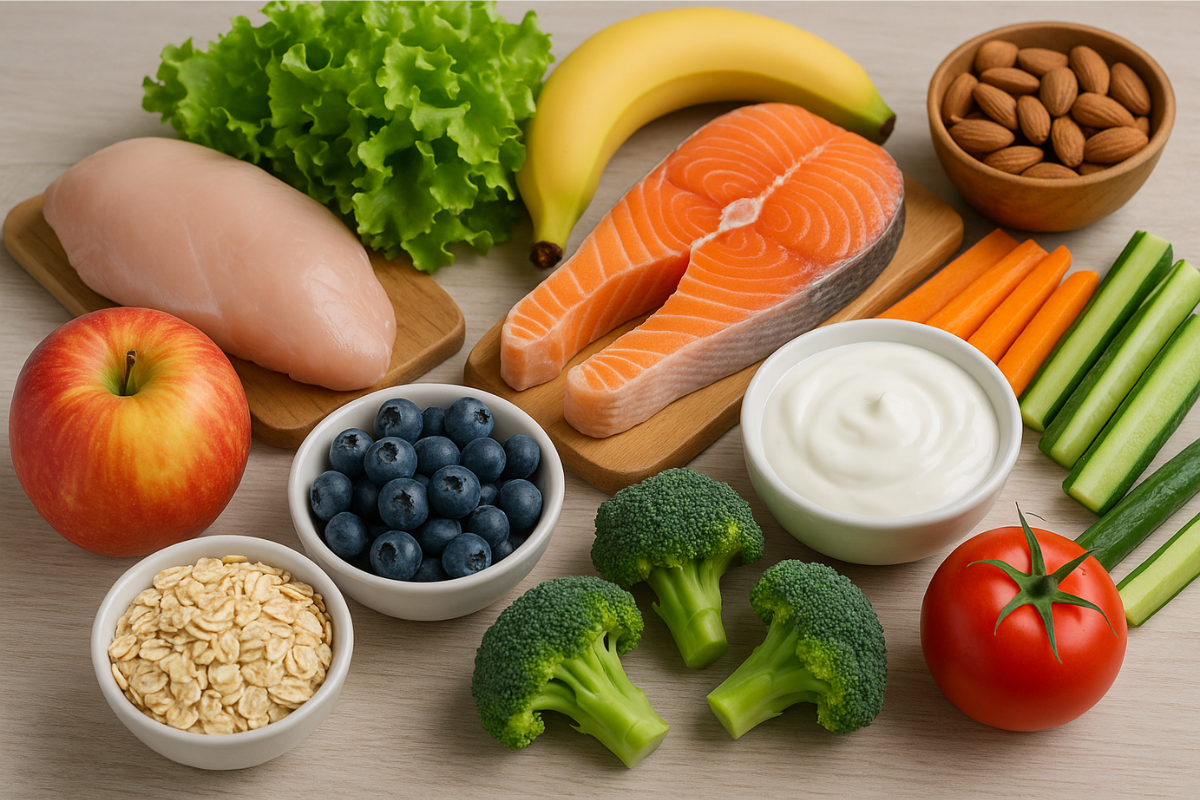Have you ever stopped to think about the power that food has over your health and well-being? Amid so much information and trendy diets, understanding what it really means to “eat healthily” can seem complicated. But the truth is, nourishing your body properly is one of the pillars for a fuller life, with more energy and quality.
In this article, we will clarify important concepts, offer practical tips, and show you how to build eating habits that promote your health in the long term. Get ready to discover a simple and effective path toward more conscious and nutritious eating!
The Pillars of Healthy Eating
Eating well goes far beyond counting calories or following strict restrictions. It is based on some essential principles:
- Variety is fundamental: A colorful plate filled with fruits, vegetables, legumes, whole grains, lean proteins, and dairy (or plant-based alternatives) ensures you get a full range of important nutrients for your body.
- Essential nutrients: Carbohydrates, proteins, and fats provide energy and support for your cells, while vitamins and minerals, even in small amounts, are indispensable for functions such as immunity and bone health.
- Hydration: Water is vital for almost every function in the body, helping with nutrient transport and temperature regulation. Besides water, unsweetened teas are also good options.
- Balance and moderation: There are no foods that are “good” or “bad” on their own, but rather balanced eating patterns. Allowing yourself occasional treats is healthy, as long as your diet’s foundation is nutritious.
Practical Tips for Healthy Eating
Starting to eat better can be simple if you follow some strategies:
- Plan your meals: Take time to organize your weekly menu and make a shopping list with healthy foods, avoiding impulsive choices.
- Choose fresh and minimally processed foods: Fruits, vegetables, whole grains, and fresh proteins are more nutritious and higher in fiber than ultra-processed foods.
- Read labels: Learn to interpret nutritional information to make conscious choices, paying attention to ingredients, sugars, sodium, and fats.
- Cook more at home: Controlling ingredients and seasonings can greatly improve your diet’s quality and make cooking a pleasurable moment.
- Have healthy snacks: Fruits, natural yogurt, nuts, and vegetable sticks help maintain energy and avoid overeating during main meals.
- Practice mindful eating: Turn off electronic devices, savor your food, notice flavors and textures, and respect your body’s hunger and fullness signals.
Debunking Common Myths
- Myth: “Cutting carbs helps you lose weight fast.”
Truth: Complex carbohydrates are important for energy and health. The secret is quality and quantity, not total elimination. - Myth: “All fats are bad.”
Truth: There are essential healthy fats, such as those from olive oil, avocado, and fish, which benefit heart health and other functions. - Myth: “Organic foods are always more nutritious.”
Truth: Organic foods avoid pesticides, which is positive, but their nutritional value may be similar to conventional ones. What matters most is eating a variety of fruits and vegetables.
Eating healthily is a valuable investment in your present and future well-being. It’s not about restrictive diets, but about building balanced, varied, and enjoyable habits. Small consistent changes bring lasting benefits to your energy, mood, immunity, and quality of life.
Start making conscious choices today and try new recipes with fresh foods. Remember: the journey to healthy eating is ongoing and full of learning.
What are your biggest challenges in maintaining a healthy diet? Share in the comments!
